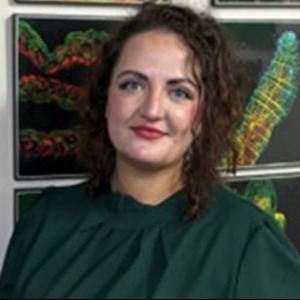Nagy Habib, Imperial College London, United Kingdom
Will be Updated Soon...

Will be Updated Soon...

Will be Updated Soon...

Cognitive health is associated with the maintenance of a well-functioning cerebrovascular system throughout life. Because the aging population continues to grow worldwide, the risk and impact of age-related diseases is increasing. Over decades of aging research, several key biolo [....] » Read More

Seven Iraqi Plants (SIP) a traditional medicinal plant that has been proven to show antidiabetic effects. This study focus is to assess the insulin secretion activity of SIP standardized methanolic extracts and mechanisms that underlie the insulin secretion action of the extracts [....] » Read More

Conditioned medium (CM) extracted from human adipose mesenchymal stem cells (hA-MSCs) contains abundant amounts of various growth factors and cytokines, boosts cell viability, proliferation, migration, immunomodulation, and promotes wound healing. However, for practical applicati [....] » Read More

Background: The Deep Inferior Epigastric Perforator (DIEP) flap is the gold standard for autologous reconstruction of the breast following mastectomy. It recruits analogous, redundant and accessible adipocutaneous tissue from the abdomen based on a reliable and consistent blood s [....] » Read More

INTRODUCTION: Cell culture techniques are essential for studying cellular behavior. However, traditional two-dimensional (2D) cultures do not fully capture the complexity of an in vivo environment due to the lack of extracellular matrix (ECM) interactions and limited structural c [....] » Read More

Conditioned medium (CM) extracted from human adipose mesenchymal stem cells (hA-MSCs) contains abundant amounts of various growth factors and cytokines, boosts cell viability, proliferation, migration, immunomodulation, and promotes wound healing. However, for practical applicati [....] » Read More

Impaired wound healing is a major medical specially in diabetic condition. Scientists worldwide are looking for new ways to treat wounds. Many different natural materials such as fibroin, chitosan, collagen or keratin have gained attention for their biomedical properties. In this [....] » Read More

Degenerative changes in intervertebral discs (IVDs) significantly alter their mechanical properties, often leading to chronic back pain and reduced spinal function. Numerical simulations, particularly finite element analyses, are invaluable for understanding how these degenerativ [....] » Read More

Background: MSCs represent a heterogenous population of cells, which can be derived either from fetal (e.g. Wharton’s Jelly from umbilical cord, placenta, etc.) or adult human sources (e.g. Bone Marrow, Adipose Tissue, etc.). Recentrly, in our laboratory were able to i [....] » Read More

In an experiment on rats, it was demonstrated that biocompatible standardized magnetite nanoparticles (ICNB) can be effectively used in MRI. It was proven that ICNB nanoparticles significantly enhance MRI imaging. The methodology for the safe intravenous administration of ICNB ex [....] » Read More

Neuropsychiatric disorders have a significant impact on global health due to their substantial effect on disability. These mental disorders typically manifest during adolescence or early adulthood, leading to severe consequences on the patient's social, emotional, and profess [....] » Read More

Background: In tissue engineering, hydrogels made from decellularized extracellular matrix (dECM) are gaining prominence because of their inherent biochemical composition and biocompatibility. They provide a platform for 3D bioprinting structures tailored to a given tissue. Hydro [....] » Read More

End-stage liver disease (ESLD), resulting from advanced fibrosis and cirrhosis, often requires liver transplantation, but the shortage of suitable donors remains a critical limitation. Bioengineered livers offer a promising alternative; however, thrombosis due to the absence of a [....] » Read More

Endothelialization is crucial for tissue bioengineering, particularly in developing functional blood vessel linings to ensure proper vascularization. Effective re-endothelialization of the vasculature in bioengineered organs is challenging, often leading to blood coagulation and [....] » Read More

Tissue banks encounter a significant challenge in maintaining viable cartilage for clinical uses such as osteochondral transplantation, trauma repair, and regenerative techniques. Cartilage is a uniquely specialized, avascular tissue where the integrity of its extracellular matri [....] » Read More

Blood vessels exhibit a range of structural and functional differences, contain a range of matrices and even specialized accessory cells that align with the specific needs of the tissue in which they reside. To study and recapitulate the highly complex behavior of blood vessels, [....] » Read More

In regenerative medicine, the selection of the optimal stem cell type is pivotal due to their diverse differentiation potentials and interactions with the extracellular matrix (ECM). Although Gellan Gum-based hydrogels have been extensively studied with various cell types, their [....] » Read More

Tendon tissue engineering is the branch of regenerative medicine that focuses on repairing, regenerating or replacing aged or damaged tendon tissue. This approach commonly makes use of various stem cells differentiated into tenocytes with the use of growth factors and biomaterial [....] » Read More

Introduction: Interleukin-2 (IL-2) is a cytokine that exerts its actions via binding to a variety of interleukin-2 receptors (IL-2R), thereby stimulating T-cell response. Acute renal graft rejection (AR) is known to be mediated by CD8+ T-cells, through the IL-2 pathway. The aim o [....] » Read More

The purpose of this research is to establish predators as an efficient IPM tool in the Australian macadamia agroecosystem by conducting a metagenomic investigation of the gut contents of predators to identify particular predator-prey dynamic interactions. Predators play an [....] » Read More
Title : Eliminating implants infections with nanomedicine: Human results
Thomas J Webster, Interstellar Therapeutics, United States
Implant infection is rising with the U.S. Centers for Disease Control predicting one person every three seconds will die from a bacteria infection by 2050. Nanomedicine is the use of nanomaterials to improve disease prevention, detection, and treatment which has resulted in hundr [....] » Read More
Title : Graphene, butterfly structures, and stem cells: A revolution in surgical implants
Alexander Seifalian, Nanotechnology & Regenerative Medicine Commercialisation Centre, London NW1 0NH, United Kingdom
Technological advancements have accelerated rapidly, as evidenced by everyday innovations like mobile phones. However, healthcare diagnostics, treatments, and surgical procedures have seen minimal progress over the last 50 years. Despite optimistic reports in the media and academ [....] » Read More
Title : Bioengineering human cornea for global supply
Jingjing You, University of Sydney, Australia
The fight against corneal blindness is a significant global challenge. Impacting all age groups, corneal disease and injury represent the 3rd most common cause of blindness affecting approximately 6.2 million people worldwide. Corneal transplantation, which uses donor corneal tis [....] » Read More
Title : Innovative educational strategies in tissue engineering: Integrating research into higher education
Laurie Mans, University of Applied Biosciences Leiden, Netherlands
The rapid advancements in tissue engineering demands an adaptive educational curriculum to prepare the next generation of professionals for impactful careers in science and innovation. At the University of Applied Sciences, we adjust our educational curriculum by integrating appl [....] » Read More
Title : A versatile principle for creating pre-vascularized tissue in vitro for soft and hard tissue engineering
Lucie Bacakova, Institute of Physiology of the Czech Academy of Sciences, Czech Republic
Pre-vascularization of in vitro engineered tissues significantly enhances their survival and proper function after in vivo implantation and is also a prerequisite for the relevance of in vitro tissue models. We propose a relatively simple and uniform principle for the const [....] » Read More
Title : Site-Specific L-DOPA Incorporation in collagen-mimicking peptides: A novel biomaterials strategy
Mor Pasi Deutschman, Ben Gurion University, Israel
Collagen, a pivotal structural protein in the extracellular matrix (ECM), plays a critical role in providing mechanical stability and supporting cell functions, making it essential for tissue engineering (TE) applications. Our work leverages synthetic biology to engineer collagen [....] » Read More
Title : Expression dynamics of mesenchymal stem cell markers in canine adipose-derived stromal vascular fraction during culture
Hitesh Rana, Guru Angad Dev Veterinary and Animal Sciences University, India
The stromal vascular fraction (SVF) is a heterogeneous cell population derived from adipose tissue that has gained attention for its potential in regenerative medicine. This study investigated the expression dynamics of mesenchymal stem cell (MSCs) markers, CD90, CD105, and CD44 [....] » Read More
Title : Development of bacterial cellulose based shape memory aerogels for biomedical applications
Ankita Sharma, IIT Delhi, India
Wound management materials are highly advanced materials that enhance health outcomes in various settings. The high cost of such materials limits their wide-spread use, particularly among under privileged population. Therefore, developing low-cost biomaterials is crucial to reduc [....] » Read More
Title : Vat-based 3D-bioprinted scaffolds from photocurable bacterial levan for osteogenesis and immunomodulation
Yusuf Olatunji Waidi, Indian Institute of Science, India
Emerging techniques of additive manufacturing, such as vat-based three-dimensional (3D) bioprinting, offer novel routes to prepare personalized scaffolds of complex geometries. However, there is a need to develop bioinks suitable for clinical translation. This study explored the [....] » Read More
Title : Differential gene expression and tumorigenicity analysis of cultured melanocyte comparing melanoma
Atefeh Shahbazi, University of Tehran, Iran (Islamic Republic of)
This study aimed to identify the optimal growth media for culturing human skin melanocytes for clinical applications and to assess their tumorigenic potential both in vitro and in vivo. Various growth media were tested to determine the most effective and safest for melanocyte cul [....] » Read More
Title : Megakaryocyte differentiation from human induced pluripotent stem cells in rat lung using 3D bioreactor
Minoo Shahidi, Allied Medical Sciences, Iran (Islamic Republic of)
Extracellular matrix plays a crucial role in the differentiation of hiPSCs into megakaryocytes. Therefore, we aimed to prepare a suitable natural acellular scaffold, and 3D bioreactor for in-vitro proliferation, and differentiation of hiPSCs into megakaryocytes. Methods: The r [....] » Read More
Title : Innovative educational strategies in tissue engineering: Bridging theory & practice in higher education
Celine Van Der Valk, Leiden University of Applied Sciences, Netherlands
The rapid advancements in tissue engineering and regenerative medicine demand a comprehensive and adaptive educational approach to prepare the next generation of professionals. At Leiden University of Applied Sciences, we offer several modules that integrate state of the art scie [....] » Read More
Title : Lipid nanoparticle-encapsulated VEGFa siRNA facilitates cartilage formation by suppressing angiogenesis
Yi Chen, Peking Union Medical College, China
Cartilage reconstruction in plastic and reconstructive surgery is mostly realized by surgical placement of supports, such as autologous rib cartilage implantation and prosthetic material implantation in rhinoplasty and microtia, but there are problems such as limited autologous c [....] » Read More
Title : Lipid nanoparticle-assisted miR29a delivery based on core-shell nanofibers improves tendon healing by cross-regulation of the immune response and matrix remodeling
Wei Chen, Beijing Jishuitan Hospital, China
It’s well known that transfecting siRNA into recipient cells is challenging due to the high hydrophilicity, high molecular weight and anionic charge of siRNA. What’s worse, siRNA is quickly degraded and inactivated in vivo. Therefore, it is of urgent importance to dev [....] » Read More
Title : The emerging role of induced pluripotent stem cells and its derivatives in periodontal regeneration: A scoping review of preclinical studies
Lida Kheiri, Dental Research Center, Iran (Islamic Republic of)
The main goal of periodontal regenerative therapy is to regenerate fully functional tissues that can replace the deteriorated ones resulted from periodontitis and injuries. Tissue engineering methods provide promising results in periodontium reconstruction and within its developm [....] » Read More
Title : Is two-step culture method a more efficacious approach for isolating mesenchymal stem cells from amniotic fluid?
Seyed Mehdi Kalantar, Yazd Medical Science University, Iran (Islamic Republic of)
Introduction: The acquisition of human mesenchymal stromal/stem cells (hMSCs) is imperative for therapeutic interventions. These versatile cells can be sourced from various fetal tissues often regarded as medical waste post-delivery. Fetal hMSCs are also procurable from aborted f [....] » Read More